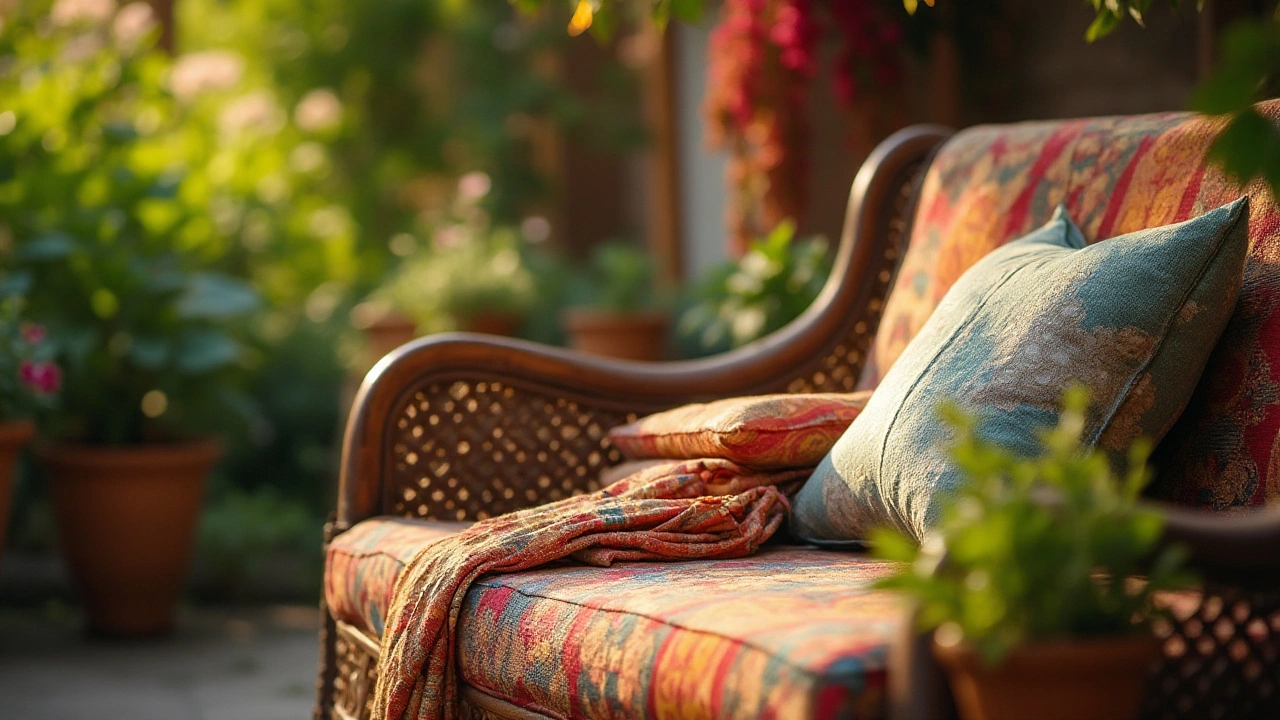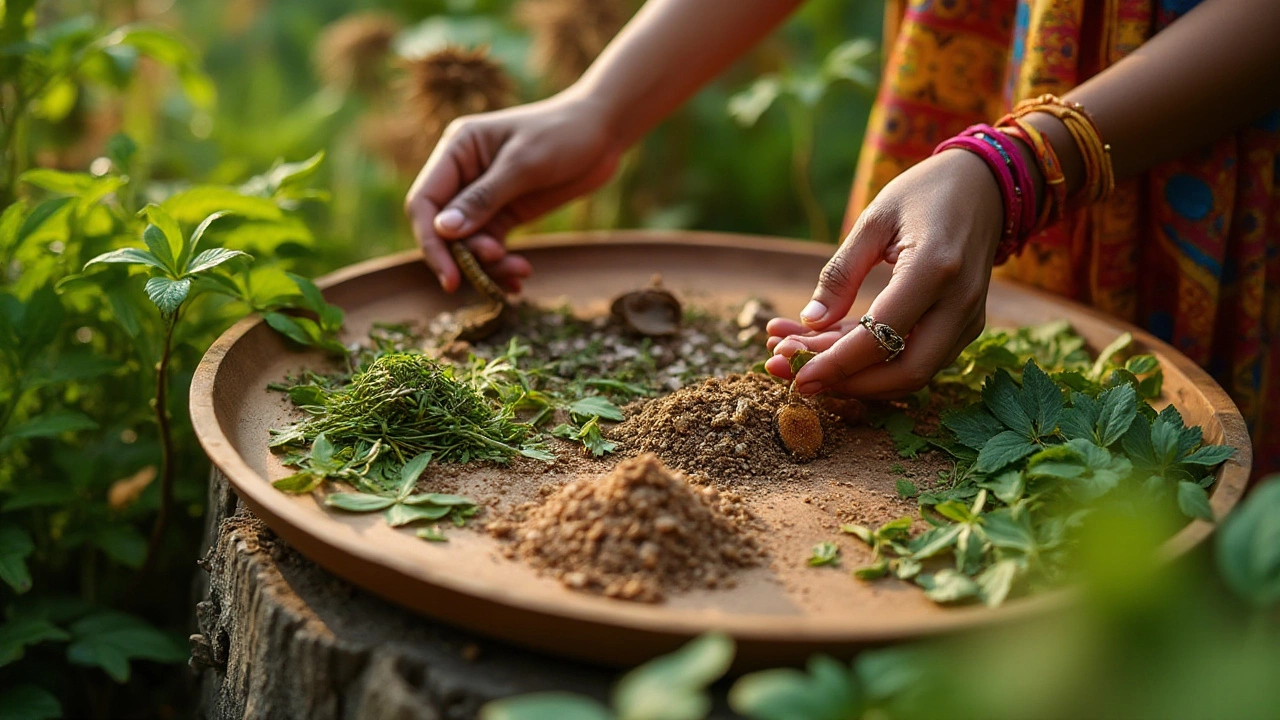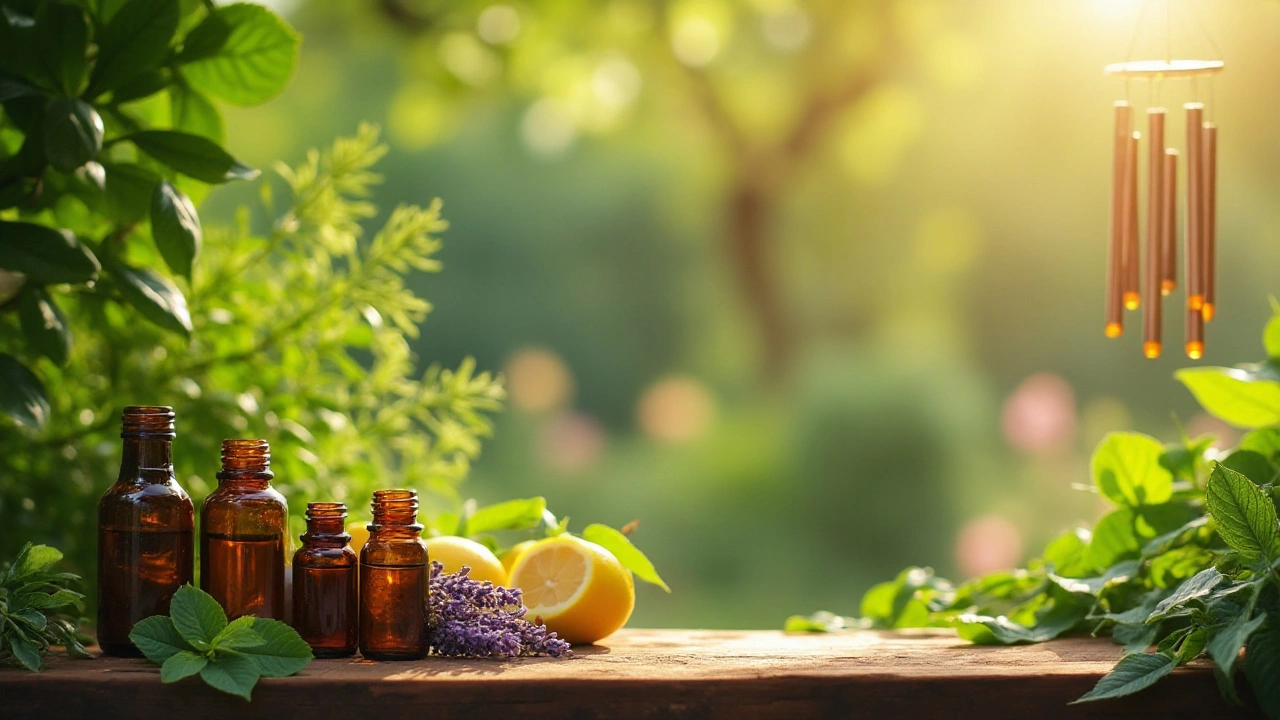With the rise in outdoor living spaces and the investment in beautiful garden furniture, the presence of small pests like chiggers can be more than just a minor irritant—they can turn a peaceful garden retreat into a place of discomfort. These microscopic mites are notorious for their itchy bites, yet there's good news for those who prefer natural solutions.
Interestingly, there are certain smells that chiggers find unbearable. These aromas, which we might find pleasant or even invigorating, act as natural deterrents to these tiny intruders. Whether it's the refreshing scent of lavender or the invigorating aroma of eucalyptus, learning to incorporate these into your garden can enhance your outdoor experience while providing a great defense against chiggers.
- Understanding Chigger Behavior
- Scents That Keep Chiggers Away
- Implementing Scents in Your Garden
- Extra Tips for Chigger-Free Relaxation
Understanding Chigger Behavior
Chiggers, belonging to the arachnid family, share their lineage with spiders, though they're far more diminutive. In their larval stage, these mites are known for their particularly troublesome bites on humans and animals, often causing intense itching and discomfort. These tiny creatures are nearly invisible to the naked eye, usually no larger than 0.3 millimeters, making them incredibly elusive. They thrive in warm, moist environments like gardens, grassy fields, and dense vegetation, which unfortunately makes people's backyards an ideal habitat. Interestingly, adult chiggers do not bite; it’s specifically their larvae that latch onto the skin.
Not many people realize that chiggers don't actually burrow into the skin or suck blood. Instead, they attach themselves using their claws and inject a digestive enzyme that breaks down skin cells. This process causes the skin to become red and inflamed, resulting in that maddening itch. Although it takes just a few days for this digestive process to occur, the itching sensation can linger for weeks if not properly treated. A single sighting of a chigger infestation might indicate a population boom, as female chiggers can lay hundreds of eggs during their lifespan. Such prolific breeding means that they can quickly become a significant nuisance in any garden.
The biological clock of chiggers ticks along with the seasons. During the cooler months, these mites become dormant, hiding among debris or under bark until favorable conditions return. This surge in activity during the spring and summer coincides with many people spending more time outdoors, thus increasing the chance of encounters. According to the University of Arkansas Cooperative Extension Service, "Chiggers are most active in late spring, summer, and early fall when temperatures are between 77 and 86 degrees Fahrenheit." This fact underscores why it's important to be vigilant during these times to keep your outdoor spaces chigger-free.
In spite of their reputation, chiggers play a crucial role in the ecosystem. Their feeding habits help in controlling the populations of small insects and are a food source for larger arthropods. Understanding these ecological nuances can sometimes shift the perspective on their existence, leading to more balanced pest management strategies. Recognizing the lifecycle and feeding behavior of chiggers provides a foundation for using scent-based deterrents effectively in garden settings. Incorporating the right strategies ensures that these beneficial aspects are maintained, without compromising the comfort of one’s personal outdoor oasis.

Scents That Keep Chiggers Away
It’s often said that nature has its own way of maintaining balance, and when it comes to keeping unwanted pests like chiggers at bay, using natural scents can be incredibly effective. Chiggers, or the larvae form of certain mites, are notorious for their bites, which cause severe itching. However, these tiny creatures are known to be repelled by specific natural scents. The good news for anyone aiming to enjoy their outdoor spaces is that many of these scents are easily accessible and pleasant to most humans.
The first fragrance that has shown promise in deterring chiggers is lavender. Known not just for its calming properties, but its pest-repelling capabilities as well, lavender is a practical choice. The essential oil derived from this plant can be rubbed directly on the skin, or it can be diluted and sprayed around garden furniture. The scent is repulsive to chiggers, making it a fabulous addition to your garden arsenal.
Eucalyptus is another powerful scent that drives chiggers away. This oil exudes a strong aroma that many insects cannot tolerate. Adding a few drops of eucalyptus oil to a diffuser or creating a mixture to spray in the garden are effective methods. Its invigorating odor is not only refreshing but also provides a natural shield against pest invasions, playing a dual role as both a freshener and a protector.
Mint, especially peppermint, holds a special place in natural pest control strategies. Its sharp and cool aroma is a strong deterrent for chiggers, and it can be planted around garden boundaries as a first line of defense. Another option is to use peppermint oil liberally in areas prone to chigger activity.
Lemon-Based Aromas
Lemon-scented plants and derivatives also do wonders. Whether it's lemon grass or citronella oil, the citrus essence is something chiggers find intolerable. Planting lemongrass around your seating areas or using citronella candles during your garden parties can reduce the presence of not just chiggers but many other biting insects. This dual action makes lemon scents an attractive choice for those who love spending time outside.
According to pest control expert Dr. Theodore Scott, "Nature provides us with many of the solutions needed to ward off unwanted insects. Essential oils are remarkably effective and often offer the added benefit of being more health and environmentally friendly."
Be bold in experimenting with the combination of these natural scents to create a barrier against chiggers in your garden. Using multiple fragrances might further ensure that your outdoor afternoons remain calm and itch-free. Not only do these scents guard against pests, but they also enhance the olfactory pleasure of your outdoor environment, making every breath a delight.

Implementing Scents in Your Garden
To truly savor the comfort of your garden furniture, a chigger-free garden is essential. Implementing natural scents to repel these pests is not only easy but also enhances the overall ambiance of your outdoor space. One effective way is by strategically placing **chiggers repellent** plants around your garden. Plants such as lavender, lemon balm, and mint are not only attractive additions but also carry strong scents that deter chiggers. A robust herbal garden that includes these can create a formidable barrier while providing other benefits like antioxidants for your cooking or teas.
Another way to integrate scents is by using essential oils. Oils like citronella, tea tree, and peppermint can be used to create a homemade spray that acts as a natural deterrent. To make your spray, mix around fifteen drops of your chosen essential oil with a cup of water and a few drops of witch hazel. Pour this solution into a spray bottle and apply it to your garden furniture or around your lounge area. Not only do these oils repel pests, but they also leave a refreshing smell lingering in the air.
Furthermore, potpourri or sachets filled with pest-repelling herbs can be strategically placed. Aromatic elements like rosemary and thyme tucked into fabric bags can be placed beneath cushions, creating little pockets of pest control hidden from view. This method not only keeps the pesky mites at bay but also adds an element of rustic charm to your outdoor décor. Such natural interventions are part of a growing movement towards eco-friendly pest management, emphasizing methods that are both gentle on the earth and safe around families and pets.
According to a study published by the National Institute of Pest Management, "The use of plant-based repellents provides a sustainable, non-toxic alternative to chemical repellents," showcasing the effective natural route taken by more households worldwide.
For a more structured approach, consider marking out specific scent zones within your garden. This can be a fun and creative way to organize your outdoor space. You might have an area dedicated to herbs that repel insects, while another section focuses on flowering plants that enhance the bee and butterfly activity. Understanding the symbiotic relationships within your garden can lead to an ecosystem that supports itself, where pests are naturally kept under control.
A fascinating way to track the effectiveness of your efforts is by noting the decrease in bites or presence of chiggers over time. By keeping a journal of where and when you apply these scents and correlating this with nuisance reports or visible reductions, you develop a keen sense of what works best in your specific climate and environment. If statistics and planning are your allies, this approach will undoubtedly yield results. Setting up a table can help monitor various trials, adjusting strategies as you go.

Extra Tips for Chigger-Free Relaxation
Creating a sanctuary in your garden where you can relax without the threat of chigger bites involves more than just relying on natural scents. Start by understanding the environment that chiggers thrive in—these mites love moisture and overgrown vegetation, so keeping your garden well-maintained is crucial. Regularly trimming your plants and ensuring that your garden furniture is placed in sunny areas can discourage the damp conditions chiggers adore. It's not just about being proactive with plant care; it's about creating an atmosphere that is simultaneously welcoming to humans but inhospitable to pests.
No relaxation setup is complete without considering the condition of your garden furniture. Ensure your seating area is dry, as moisture attracts chiggers. Using furniture covers can help keep your seats dry and clean, which is a bonus for both pest prevention and maintenance. It might seem obvious, but shaking out cushions and blankets that are used outside can dislodge any clinging critters before they become a problem—this simple act turns a potential infestation into a nonexistent worry.
Moreover, personal protection shouldn’t be overlooked. Opt for protective clothing when you plan to be outdoors for extended periods. Tight-weave fabrics can serve as physical barriers, preventing chiggers from reaching your skin. Clothing treated with permethrin, a mild insecticide, is another layer of defense. For those who prefer natural methods, wearing essential oil-infused wristbands could add an olfactory shield—consider scents like peppermint or lemongrass, which are said to deter chiggers effectively.
"Gardening is how I relax. It's another form of creating and playing with colors." — Oscar de la Renta
Lastly, gardening habits also deserve some consideration. Cultivating certain plants that naturally repel pests can be hugely beneficial. Think of plants like marigolds and citronella, both of which are known to deter various insects. As an added benefit, these plants can add both visual appeal and fragrance to your garden. Beyond aesthetics, maintaining a diverse plant ecosystem raises the overall resilience of your garden, benefiting not just human visitors but also the health of the environment.
An integrated approach combines these elements to form a more holistic strategy against unwelcome pests. For instance, you could place citronella plants around your garden furniture, creating a boundary of scent that subtly keeps chiggers at bay. By keeping your surroundings dry, tidy, and fragrant, your garden will transform into a genuine haven. After all, outdoor living spaces should be places of comfort and enjoyment, not worry and discomfort.

